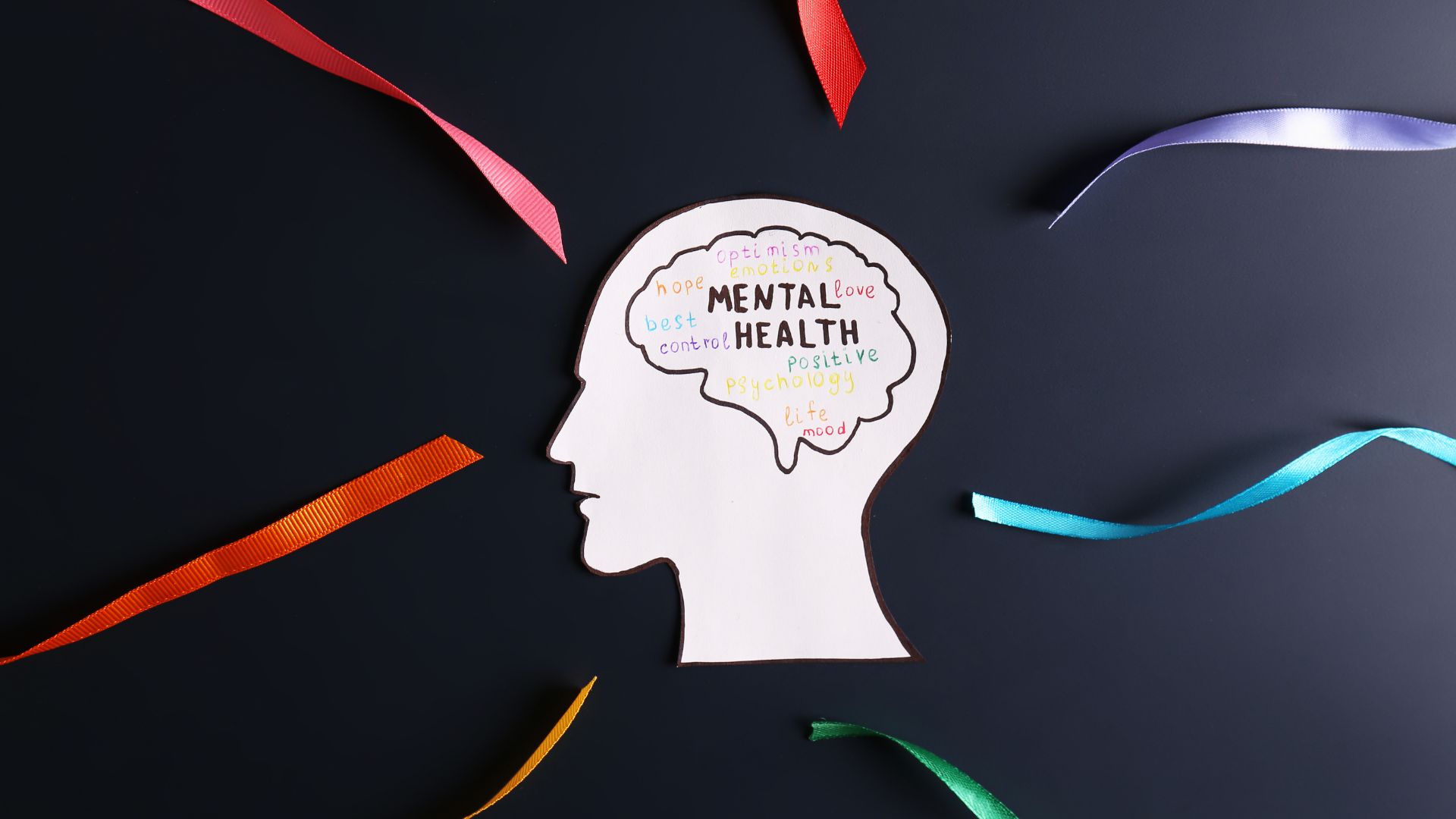5 Activities To Help Your Mental Health
28 Apr, 20251-2 minutes
In this blog, you will learn:
- How mental health is defined.
- Signs of poor mental health.
- Which activities can help your mental health.
- Where to find activities that benefit mental health.
- The benefits that activities have on mental health.
How is mental health defined?
Mental health refers to your emotional, psychological and social well being. It affects how you handle stress, interact with others and cope with the daily struggles that come your way. Positive mental health can help you maintain strong relationships with others and enhance your focus, concentration, and motivation.
If your job is making you depressed, adopting healthy habits and participating in wellness programs can lead to increased productivity both at work and in your personal life. This allows you to set goals and stay on track with them. Whether it's completing a task at work or setting a personal goal, increased focus enables you to make tangible progress towards your goals.
However, poor mental health can make life feel like more of a struggle and cause burnout. You may experience difficulties in managing your emotions, thoughts and behaviours, which can significantly impact your overall quality of life.
Throughout this blog, we discover how activities benefit your mental health and how to find these activities.
What are the signs of poor mental health?
Learning and understanding the signs of poor mental health can help to ensure prompt treatment. Recognising the signs of poor mental health allows you to seek help early, which can prevent your mental health from worsening.
Some of the most common signs of poor mental health are:
- Feeling anxious.
- Feeling depressed or unhappy.
- Weight or appetite changes.
- Substance abuse.
- Feeling guilty or worthless.
- In extreme cases, suicidal thoughts.
Feeling anxious
Anxiety is a natural response to stress, but when it becomes excessive or overwhelming, it can reduce your daily functioning and lead to significant distress. It can interfere with your relationships, work, and overall quality of life.
Feeling depressed or unhappy
Depression is a mood disorder characterised by continuous feelings of hopelessness, sadness, and a lack of interest for activities that you once enjoyed. It can affect your sleep, appetite and energy levels, making it hard for you to carry out daily tasks.
Weight or appetite changes
Significant changes in your weight or appetite can be a key indicator of underlying mental health issues. Sudden weight loss or a decrease in appetite may accompany depression, while weight gain or increased appetite can be associated with stress or emotional eating.
Substance abuse
Substance abuse often occurs with mental health disorders as you may turn to drugs or alcohol as a way to cope with emotional pain. While substances may provide temporary relief, it can worsen your mental health issues and lead to addiction.
Feeling guilty or worthless
Persistent feelings of guilt or worthlessness are common symptoms of poor mental health. You may blame yourself for your circumstances, perceive yourself as a failure, or feel undeserving of happiness and success.
In extreme cases, suicidal thoughts
Suicidal thoughts are a serious indication of poor mental health. If you’re having thoughts of suicide or self-harm, you should seek help immediately.
Here are some helplines you can call:
- Samaritans – Call 116 123
- Childline - Call 0800 1111
- Papyrus - Call 0800 068 41 41
- SOS – Call 0300 1020 505
- Campaign Against Living Miserably - Call 0800 58 58 58
What benefits do activities have on mental health?
Engaging in activities such as exercise, hobbies, or socialising can significantly benefit your mental health. These activities help beat stress, improve mood, and increase feelings of happiness which can improve wellbeing and help you thrive.
The benefits that activities can have on your mental health are:
- Stress reduction.
- Improved mood.
- Improved cognitive function.
- Social connection.
Stress reduction
Taking part in activities such as meditation, spending time in nature and exercising can trigger the release of endorphins, often referred to as "feel-good" hormones, which counteract the effects of stress hormones such as cortisol.
Exercise in particular, not only helps to reduce stress but also improves your mood.
Similarly, activities like meditation and spending time in nature encourage relaxation, deep breathing and mindfulness, which can effectively reduce feelings of tension and anxiety.
Improved mood
Taking part in activities can improve your mood due to a combination of physiological and psychological factors. Engaging in enjoyable activities triggers the release of neurotransmitters such as dopamine.
Activities can also provide a sense of accomplishment and distraction from stress, helping to shift your focus away from negative thoughts and emotions.
Improves cognitive function
Engaging in activities can increase cognitive function through various mechanisms. Physical activity such as exercise, increases blood flow to the brain, delivering oxygen and nutrients essential for optimal cognitive performance.
Activities that challenge the brain, like puzzles or learning new skills, can also improve cognitive function, memory and concentration.
Social connection
Many activities involve interacting with others, which can reduce feelings of loneliness and isolation. Social connection is crucial for mental wellbeing and can provide emotional support and a sense of belonging.
Which activities can help mental health?
Whether it's through exercise, spending time in nature, volunteering, meditation or socialising, finding an activity that benefits your mental health is crucial for your overall wellbeing.
Here are some activities that can benefit your mental health:
- Exercise.
- Spending time in nature.
- Volunteering.
- Meditation.
- Socialising.
Exercise
Exercise releases a chemical in your brain known as dopamine. Dopamine plays a crucial role in reducing anxiety, depression, stress and improving your mood.
Taking part in exercise can also help you strengthen your muscles, improve your brain health and manage your weight which can all contribute to better mental health.
You should aim for at least 30 minutes of moderate exercise most days of the week. This could be anything from walking and jogging to swimming, dancing, or yoga.
If you work in an office and struggle to find the time to exercise, there are simple but effective exercises you can do at your desk which will benefit your mental health. Knowing your mental health rights at work is essential to ensure you have access to the support you need whether that be taking time for therapy, exercise or other self-care practices.
Spending time in nature
Spending time in nature is beneficial for your mental health as it improves your mood, reduces feeling of stress, helps you take time out to feel more relaxed and helps you become more active.
Nature also boosts your creativity and problem solving abilities. Nature helps you to recharge your directed-attention, which is needed when developing new ideas. If you don't live near the countryside, there are still many great ways to connect with nature in the city.
Spending time in nature releases stress hormones which helps your brain focus on problem solving.
This can help in the workplace as problem solving and creativity are key skills to have. Strong problem solving skills give you the ability to handle unexpected and difficult situations in the workplace and also allow you to overcome any complex business challenges. Taking actionable steps to prioritise your mental health at work and spending time in nature can help improve you experiences at work and enhance job satisfaction.
Whether it's going on a walk, having a picnic in the park, or simply sitting in your garden, spending time outdoors can have a positive impact on your mental health.
Volunteering
Volunteering and helping others can give you a sense of purpose. It's a chance to make a positive impact while also building meaningful relationships and reducing stress.
Engaging in volunteering work also encourages physical activity which can lead to a more active lifestyle.
Helping out with even the smallest tasks can make a real difference to people's lives, so knowing you've made an impact can bring a sense of fulfilment and a positive outlook on life.
Meditation
Meditation encourages relaxation and reduces stress by activating the body's relaxation response, which can reduce anxiety and depression. It can also improve symptoms of stress-related conditions such as PTSD and IBS.
Meditation also encourages mindfulness, allowing you to become more aware of your thoughts and emotions without judgement.
Over time, regular meditation can lead to improved focus, concentration, and overall wellbeing.
Socialising
Socialising is essential for your mental health. Spending time with friends and family provides emotional support, reduces feelings of isolation and boosts self esteem. Having people to lean on during tough times can provide comfort and help you cope better with stress.
Socialising often involves laughter and enjoyment, which can release endorphins, further enhancing your mood.
How can I find activities that will benefit my mental health?
Finding activities that will benefit your mental health requires you to reflect on your interests, be open minded, experience different activities and set realistic goals.
Start by considering activities you already enjoy or new activities you’ve been interested in exploring. Trying out a variety of activities to see which you prefer is beneficial. This could include physical activities such as yoga, hiking, or dancing, creative pursuits like painting, writing, playing music or mindfulness practices such as meditation.
Don't be afraid to step out of your comfort zone and try new things. You might discover activities that surprise you in terms of how much they benefit your mental health.
Set realistic goals for incorporating activities into your routine. Start small and gradually increase the time or intensity as you feel more comfortable.
Make an effort to prioritise time for taking part in regular activities, consistency is key to long term benefits.
Searching for a new job?
If you’re searching for a new and exciting career opportunity, why not check out the latest jobs available or upload your CV and be contacted when a suitable vacancy arises.
If you loved this content, you might also like:
- Finding Help: 7 Mental Health Charities to Access Support
- What Are My Rights With Mental Health at Work?
- Feel Your Best With These 7 Wellness Apps
Struggling to recruit?
Recruiting throughout the UK, across eleven different specialisms, we support local authorities, public sector organisations and private companies with their recruitment needs.
If you’re struggling to recruit top talent, why not take a look at everything we offer or submit a vacancy to get the ball rolling today!
Who is Spencer Clarke Group?
Established in 2017, we’re an award winning and progressive recruitment agency based in the heart of the North West. Our reputation is built on trust, expertise and an unwavering commitment to exceed expectations.
In 2024, we were named Recruitment Agency of the Year at the prestigious Recruiter Awards, an accolade we are extremely proud of.



